Discovering a Hidden Quechua Church
If you were to travel back in time to 1960s southern Peru, you would step into a world untouched by the modernization that was happening in the rest of the globe. You would find yourself far away from any bustling metropolis with their highways, buildings, and technology.
Instead, you would be surrounded by varying terrain—from the towering peaks of the Andes mountains to the lush vegetation of the rainforest. If you explored a little more, you might come across the tiny villages nestled in the region’s mountain valleys, canyons, and jungle. Here the Quechua people resided in small settlements, far from the reach of modern civilization.
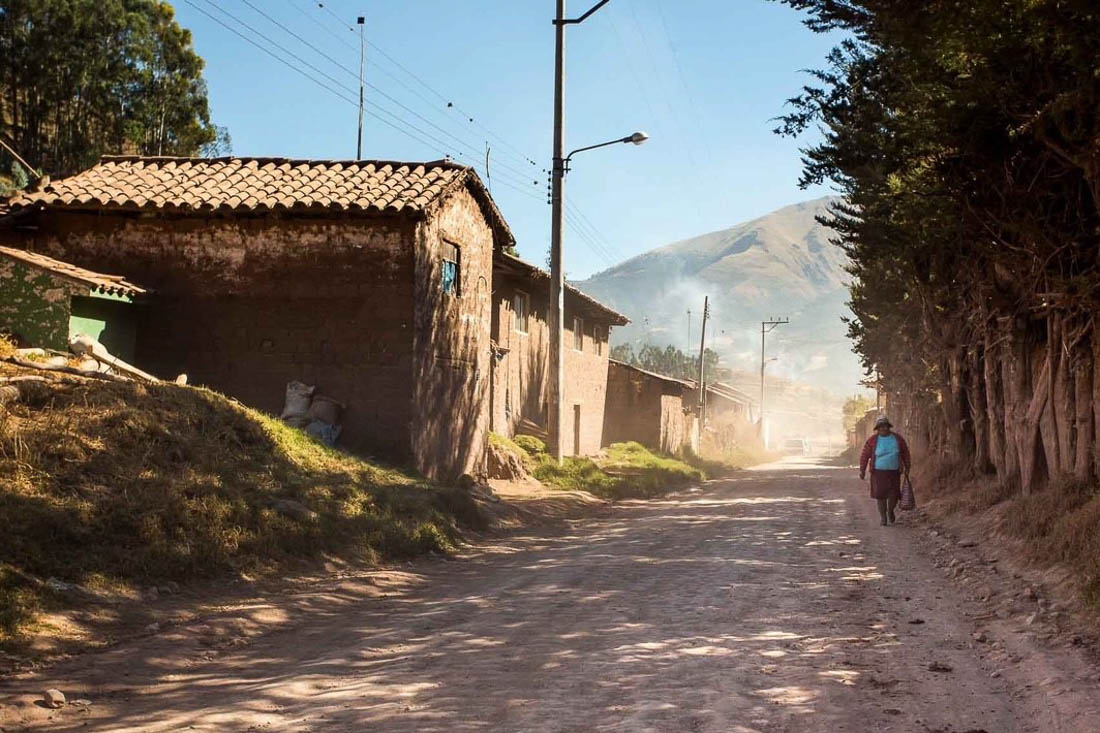
This is where MTW Cusco missionary Keith Powlison grew up. His family served as missionaries in southern Peru with MTW’s predecessor, World Presbyterian Missions, during the 1960s and 70s to work with the Quechua people—an unreached people group that most of the world didn’t know existed at the time.
During his childhood Keith watched his parents and WPM missionaries deliver the gospel to the remote Quechua villages. But it would be years before he discovered the full impact of his parents’ work.
Amplifying Wisdom Through Radio
In 1967, Keith's family moved to Huanta, Peru, to help WPM missionaries and some local Quechua pastors develop a radio ministry called Radio Amauta (“amauta” means “wise one” in Quechua). Keith was 12. He remembers their little town only had electricity for a few hours in the evening. It was just powerful enough to dimly light their house. There was no internet, no cell phones, no computers, and no email. Many of the Quechua settlements did not even have a road leading to the village. The villages that did were perilous to access. The WPM missionaries and Quechua pastors figured the easiest and most efficient way to reach the Quechua people with the gospel was through the radio.
Operating out of a basement, the Radio Amauta team used a generator, a 250-watt transmitter, and a Lazy H antenna system to transmit Bible programs, sermons, and community announcements in the Quechua language over shortwave radio. They delivered pre-tuned radios to people living in the Quechua villages throughout the region.
For the next decade, Radio Amauta continued to grow and develop. Keith’s father, Hugh, worked tirelessly in a garage to engineer and build a more powerful transmitter for the radio ministry. Meanwhile, Keith spent his teenage years playing soccer and croquet with the other missionary kids and Quechua children—oblivious to the fact that this close-knit community of his childhood would come into play long into adulthood.
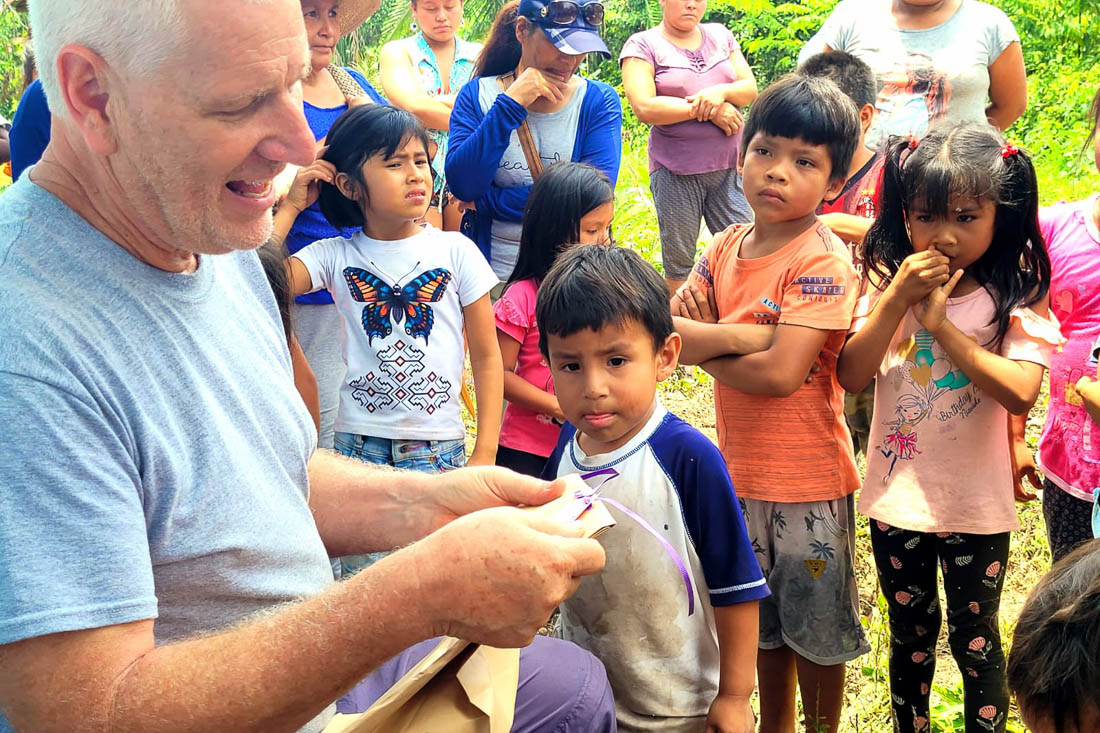
Discovering Short Wave Radio Has a Long Reach
In the early 1970s, Keith returned to the U.S. for college at Columbia International University (then known as Columbia Bible College), where he met his wife, Ruth. After graduating, getting married, and serving in two other Latin America countries, Keith returned with Ruth to Peru in 1998 to serve on an MTW team in Cusco, about 150 miles as the crow flies from where he grew up. Back in Huanta, Radio Amauta had full-time staff that continued to oversee the radio program from their ministry headquarters. Though Keith kept in touch with them, he and MTW’s Cusco team focused on the region’s other ministry needs such as church planting, leadership development, and medical missions.
By Keith’s own admission, the MTW Cusco team is full of adventurers who love to go off-roading in four-wheel-drive trucks. The varied landscape of southern Peru provided the rough terrain needed to add a little fun to their busy ministry lives.
It didn’t take long for the MTW Cusco team to turn their escapades into medical caravans for the Quechua people in the region. Access to healthcare was one of the main challenges for the people in southern Peru. This issue was amplified for people in the Quechua villages who lived in the remotest parts of the region. There were now roads leading to most of these villages, but they were still difficult to travel.
Keith and the team would take medical supplies to these places and set up small clinics. Sometimes the team would deliver food, blankets, and other supplies to help villagers in the mountains prepare for a harsh winter: Though it didn’t happen often, a fierce snowstorm could put them on the brink of survival, killing all their animals and blocking all their roads.
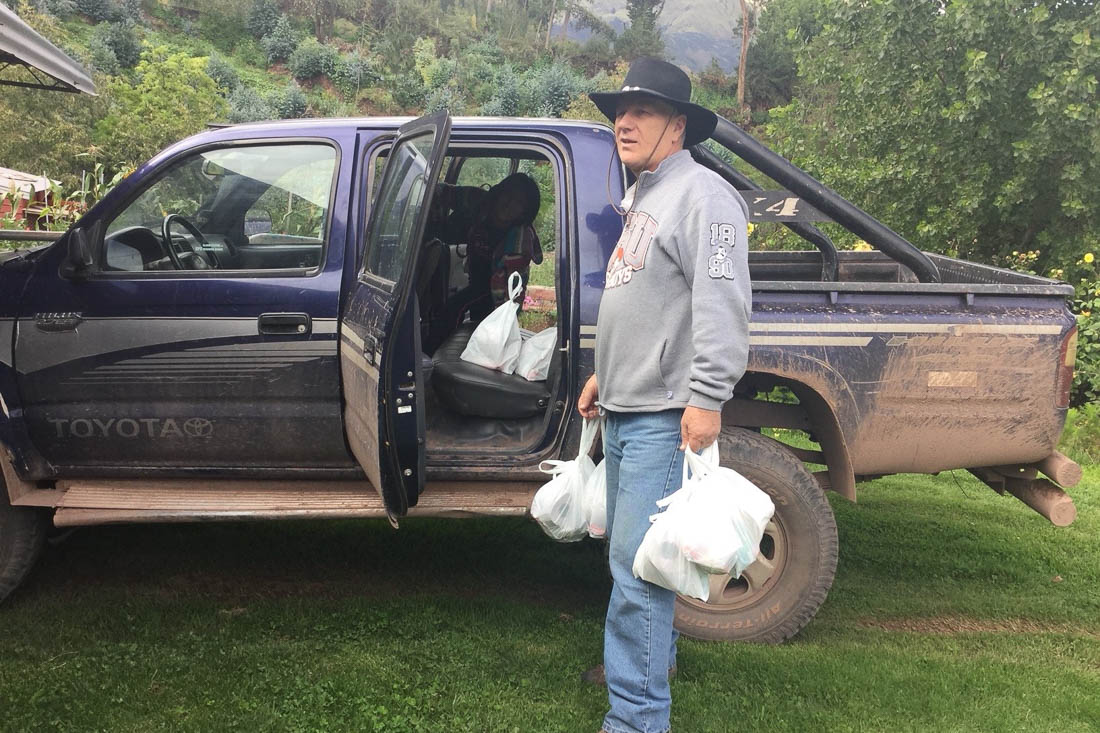
The teams considered ministry in remote villages an adventuresome challenge. “We would get these doctors—they called themselves the A-team—and we would go to the most crazy places,” said Keith. “We would winch each other out of these horrible swampy bogs that were supposed to be roads.”
Once Keith traveled to a place called “Chiripampa,” which means “cold, flat place” in Quechua. Something was different about this village. He noticed everything was well-organized and that the people were polite and thankful for the help.
He learned there was a church in the Quechua village and many of the people were Christians. He was surprised that these people, who lived far removed from the rest of society, had not only heard the gospel, but also had planted a church.
Then they told him, “Well, we listen to Radio Amauta.”
Keith was astonished. “You’ve got to be kidding! I’m actually the son of one of the people that helped start Radio Amauta,” he exclaimed.
As the medical trips continued to various settlements, more villagers emerged as avid listeners and Radio Amauta’s impact was much bigger than Keith had imagined. Eventually, he learned that the radio ministry was responsible for hundreds of conversions among these isolated Quechua people. These Christians formed churches, which had organized into a denomination of about 200 congregations scattered throughout the region.
And it all started decades earlier in a basement with a transmitter built in a garage.
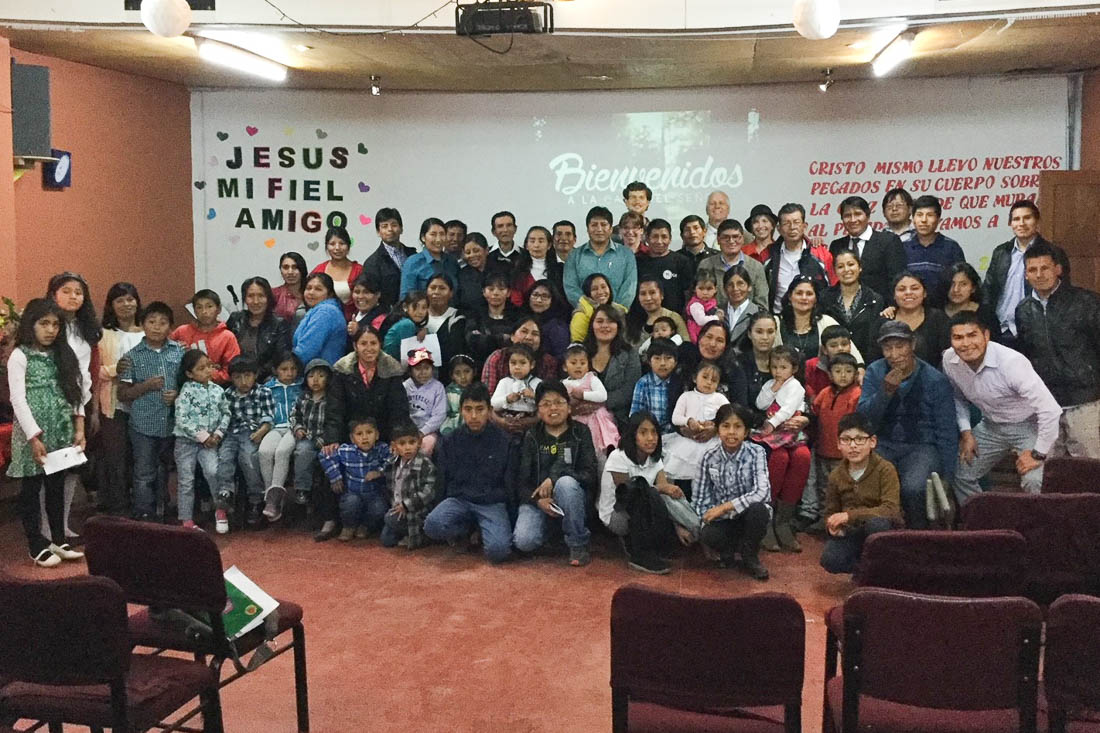
Equipping the Next Generation of Church Leadership
As they got to know the current situation of these congregations, the MTW team learned that many of the Quechua pastors and elders were worried about the future of their church. The existing leaders were aging, and they were struggling to train the next generation of leaders. Other villages wanted to plant a church but needed direction. And accessing church planting and leadership development materials is an ongoing challenge because of these churches’ locations.
Keith recognized the need to step back into the world of his childhood. Radio Amauta—which had faithfully continued broadcasting over the decades—was still an effective and reliable way to reach Quechua Christians with gospel-centered resources.
“Story after story began to convince me that what was going on in 1967 was still strategic today because some of those places are still hard to get to,” he said.
Keith approached the Radio Amauta staff with a plan to expand the ministry’s capacity. First, he and the staff are working to broadcast more content, and Keith is using his network to get more pastors involved in Radio Amauta. Second, they are going to invite younger Quechua church members to start listening to training programs. They are specifically encouraging young men to prepare themselves to be the next generation of ruling and teaching elders.
“This last trip I actually had the opportunity to help train about 150 Quechua-speaking leaders for about two days. And it would be much easier for the radio to do it because I got sick and barely made it home,” said Keith. Using the radio ministry to train leaders is far more efficient.
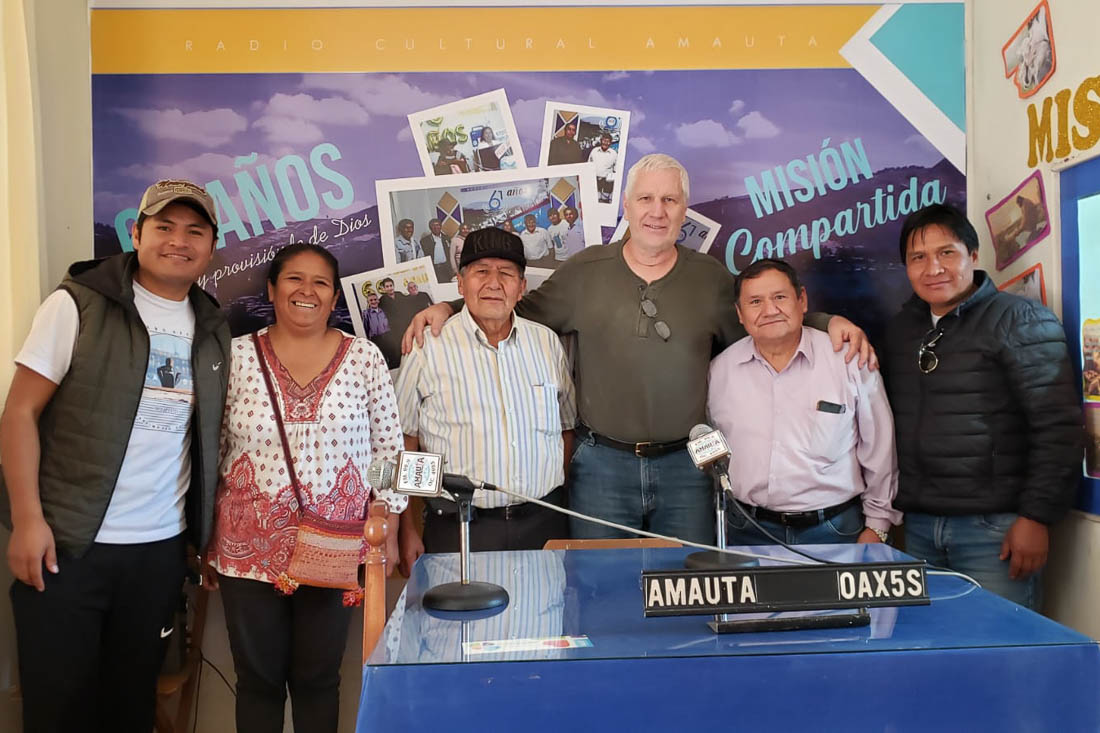
An Enduring Legacy Remains Vital
Back in the 1970s, the WPM missionaries passed Radio Amauta’s reins to national leadership. Since its start almost 60 years ago, Radio Amauta has developed beyond shortwave radio into a ministry with an FM radio station, a social media presence on several platforms, and a website that offers streaming services.
MTW Cusco and Radio Amauta’s plans for leadership training are still coming together, and a special grant from MTW donors has kickstarted this new expansion of the radio ministry. But the legacy that Keith’s father helped shape in 1967 remains vital today. Using a simple radio, missionaries built a bridge between the isolated Quechua people and the broader Church. Every day the gospel crosses that bridge into the hearts and lives of the Quechua people.
To help support Radio Amauta, visit Peru Radio Amauta Project 94760.
Chelsea Rollman is a marketing specialist and staff writer at MTW. She formerly served as the girls’ discipleship coordinator at Village Seven in Colorado Springs, and as a marketing assistant at The White Horse Inn. Chelsea graduated from Covenant College in 2016 with her B.A. in English. She and her husband, Hudson, live in Jacksonville, Florida, and attend Christ Church Presbyterian where Hudson serves as the youth director.
GET INVOLVED
My Prayer Journey to Cusco
Last year MTW's Hispanic RADD team took a vision trip to Peru and emerged with a renewed focus on the importance of prayer in missions.
SEE MOREContextual Generosity: An MTW Missionary Team Navigates Giving in Peru
Wherever possible we invite nationals to serve nationals through the structures and ministries of the local church.
SEE MORETrue Religion: Caring for Orphans in Cusco, Peru
When Rosa's father murdered her mother in front of her, the 18-month-old child had nowhere to go. But then the Josephine House stepped in.
SEE MOREPray for Radio Amauta and its efforts to help train leaders in the Quechua Church in the Andes Mountains of Peru.
Last year, a group of MTW RADD-Hispanic leaders went to Peru on a prayer journey vision trip. Pray for continued unity and mobilization efforts of our RADD Hispanic team!
Pray for the children and staff of The Josephine House in Cusco, Peru. The orphanage is currently home to 18 children, many with special needs.
Pray for the success of a new laser surgery business as missions ministry in Cusco, Peru, giving sight to those who need it most.
Pray for church planting efforts in Cusco, Peru, where many know about Christ, but few know Him personally.
Pray today for the Quechua in Peru, that God would draw them to Himself. Pray for the missionaries working with them and for relationships being built.
Pray for our ministry in Cusco, Peru, as they put MTW values into action among the Quechua through the church, a medical clinic, discipling medical students, an orphanage, and community outreach.
Pray for the church plant and medical clinic in Cusco, Peru. Pray that believers would grow in Christ and catch a vision for reaching their city.
Pray for the abandoned and disabled children living at The Josephine House in Cusco, Peru. Pray that they will grow in the knowledge of Christ and be adopted into godly homes.
Pray for a Quechua family in Peru who are eager to invite others over to discuss the Bible. Pray that this group would develop into a church.
SUBSCRIBE TO STORIES & MORE
Good news in your inbox, once per week.
1600 North Brown Rd
Lawrenceville, GA 30043
United States
1-678-823-0004
[email protected]
Donor Advised Fund Portal
Circle Portal


